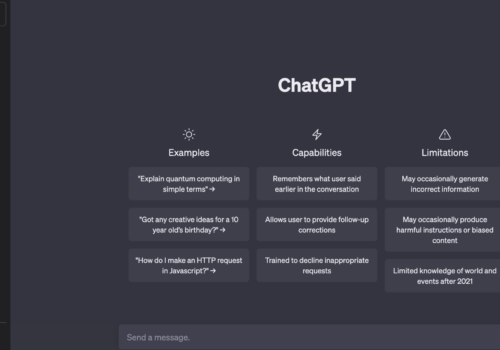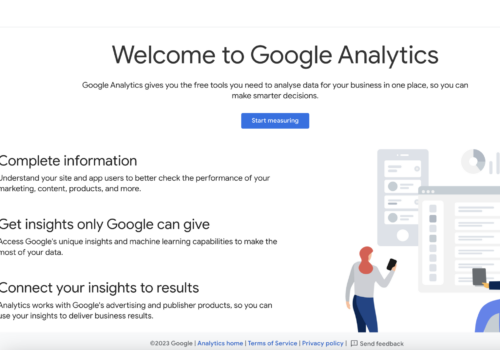Whether you’re a student, teacher, or administrator, you’ve likely heard about the advantages of e-learning. But what about its disadvantages? This blog post will explore some of the potential downfalls of online learning. Keep in mind that not every disadvantage will apply to every person or situation – but it’s important to be aware of them all before making a decision about whether e-learning is right for you.
Are you considering taking online courses to further your education? Before making a decision, it’s important to weigh the pros and cons of e-learning. In this blog post, we’ll take a closer look at the disadvantages of electronic learning.
Keep in mind that not every disadvantage may apply to you, so be sure to do your own research before making a final decision. E-learning is becoming an increasingly popular way to get ahead in your career or gain new skills, but there are some drawbacks to consider before making a commitment.
Though e-learning has many advantages over traditional teaching methods, it also has some disadvantages. In this blog post, we’ll discuss some of the key disadvantages of e-learning. Keep in mind that not every e-learning setup is created equal – these disadvantages may not apply to all online courses. But if you’re thinking about enrolling in an online course, it’s important to be aware of these potential downsides.

Image Credits : https://pxhere.com/en/photo/1593294
What is E-learning?
E-learning is defined as the use of electronic media and information and communication technologies (ICT) in education. E-learning includes all forms of electronically supported learning and teaching. Technology has become an integral part of education today. It plays a significant role in improving pedagogy as well as providing new ways for educators to engage with learners.
E-learning can be used for a wide variety of purposes, including:
Distance learning: Students and teachers can interact with each other remotely, using technology such as video conferencing, VoIP, and email. This type of e-learning is often used in higher education, where students may not be able to attend classes in person.
Blended learning: This is a mix of online and offline learning, where students may complete some of their coursework online, and the rest in a traditional classroom setting.
Gamification: This is the use of game mechanics and elements in non-game contexts, such as education. Gamification can make learning more engaging and fun for students.
Microlearning: This is a type of e-learning that delivers small pieces of content, such as videos or audio clips, that can be easily consumed on mobile devices.
Social learning: This is a type of e-learning that takes advantage of social media and networking technologies to facilitate learning. It can include features such as discussion forums, blogs, and wikis.
Disadvantages of E-learning or Online Learning
E-Learning, also known as online learning, has been around for quite some time. It is a type of learning that takes place via the internet. While e-learning has many advantages, there are also some disadvantages to consider.
One of the main disadvantages of e-learning is that it can be quite isolating. If you are not used to learning online, it can be quite difficult to get used to. Additionally, if you are not comfortable with using computers or the internet, e-learning may not be the best option for you.
Another disadvantage of e-learning is that it can be quite expensive. While many courses are free, there are also many that come with a fee. If you are not sure whether or not you want to take a particular course, it may be worth it to find one that is free.
Finally, e-learning can also be quite time consuming. If you have a busy schedule, it may be difficult to find the time to complete an online course. Additionally, if you are not used to learning online, it may take some time to get used to the pace of an online course.
Despite these disadvantages, e-learning can be a great way to learn. If you are willing to put in the time and effort, you can find courses that are both affordable and convenient. Just be sure to do your research before enrolling in an online course.
Online student feedback is limited-
While online student feedback can be useful, it is often limited in scope. Online surveys may not capture all the nuances of student experience, and student comments may be biased or incomplete. In addition, online feedback may not be representative of the entire student body. Therefore, online feedback should be interpreted with caution and used as one of several sources of information.
When making decisions about online courses and programs, administrators should consider a range of factors, including online student feedback. However, online student feedback should not be the only factor considered. Other important factors include course evaluations, faculty input, and data on student learning outcomes. Administrators should use a variety of sources of information to make informed decisions about online courses and programs.
E-Learning can cause social Isolation-
E-Learning can lead to social isolation for some students. This is because they are not able to interact with their classmates and teachers in person. Additionally, e-Learning can be a more isolating experience than traditional learning, since it can be harder to build relationships online. Finally, e-Learning can also cause anxiety and stress for some students, which can further contribute to social isolation. If you are considering e-Learning, it is important to be aware of these potential risks and take steps to avoid them. For example, you can make an effort to connect with your classmates and teachers online, and you can also try to participate in offline activities that will help you meet new people. Additionally, if you are feeling anxious or stressed about e-Learning, it is important to reach out for help from a counselor or therapist.
E-Learning requires strong self-motivation and time management skills-
The most important thing to remember when embarking on an e-learning journey is that you need to be highly self-motivated and have excellent time management skills. These two qualities are absolutely essential for success in any online learning environment.
Without motivation, it will be very difficult to push through the challenging moments and keep going when things get tough. And without good time management skills, it will be easy to get overwhelmed and bogged down in the details.
So if you’re thinking about embarking on an e-learning adventure, make sure you have these two qualities in spades! Otherwise, you might find yourself struggling to keep up with the pace and ultimately giving up.
Lack of communication skill development in online students
There are several reasons why online students may not be developing their communicational skills as effectively as they could be. First, they may not have as much opportunity to practice and receive feedback on their communication skills as offline students do. Second, the asynchronous nature of online communication can make it more difficult to gauge social cues and develop a rapport with others. Finally, the lack of face-to-face interaction can make it more difficult to build trust and establish relationships.
These factors can make it more difficult for online students to develop their communication skills, but there are ways to overcome these challenges. First, online students can make an effort to seek out opportunities to practice and receive feedback on their communication skills. Second, they can try to be more aware of social cues and use them to their advantage. Finally, they can use technology to its fullest potential by using video conferencing and other tools to establish relationships with their peers.
Cheating prevention during online assessments is complicated-
Cheating prevention during online assessments is complicated. There are a variety of ways that students can cheat, and it can be difficult to catch all of them. Some common methods of cheating include using unauthorized materials, collaborating with other students, or simply not completing the assessment.
There are a few things that can be done to try to prevent cheating. First, make sure that the assessment is fair and that all students have the same opportunity to succeed. Second, clearly state the rules of the assessment and what is considered cheating. Finally, be vigilant in monitoring students during the assessment and take action if you suspect cheating is happening.
Online instructors tend to focus on theory rather than practice-
There is a common perception that online instructors tend to focus on theory rather than practical applications. This may be due in part to the fact that online courses often require less hands-on work than traditional classroom-based courses. However, it is also possible that online instructors simply feel more comfortable teaching theoretical concepts than practical skills.
Whatever the reason, it is important to keep in mind that online courses can be just as practical as classroom-based courses. If you are interested in learning practical skills, look for online courses that include hands-on assignments or projects. Alternatively, you can try to find an offline course that covers the same material. Either way, make sure to ask your instructor questions if you are unsure about anything.
Conclusion- Disadvantages of e-learning
While e-learning definitely has many advantages, it’s not the perfect solution for everyone or every situation. Before making the switch to e-learning, carefully consider all of the potential disadvantages and make sure that they won’t have a negative impact on your students or employees.
While e-learning has many advantages, it is not without its disadvantages. Before making the decision to switch to an e-learning platform, school administrators should carefully weigh the pros and cons of this type of learning environment.




